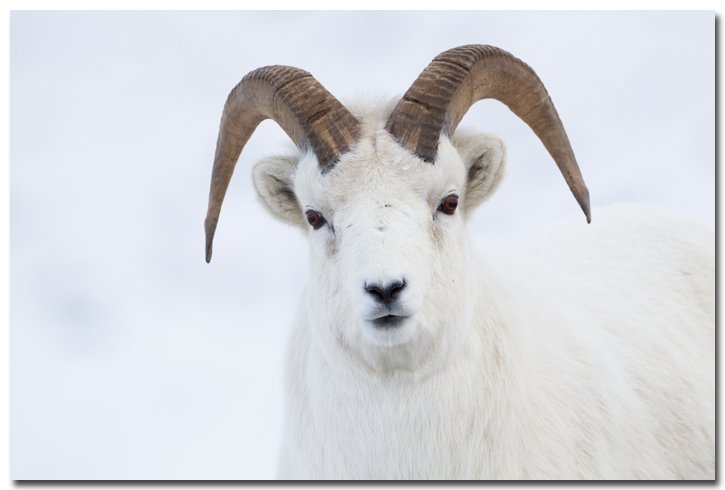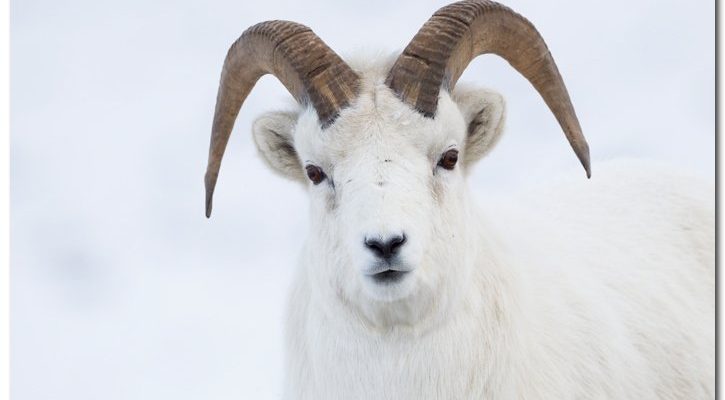
Dall sheep are specifically adapted to their mountainous environments, and their intelligence plays a significant role in their survival. Just like a seasoned hiker who knows every twist and turn of the trail, these animals have developed strategies to navigate the rocky landscapes and avoid predators. Understanding how smart Dall sheep truly are can give us some amazing insights into not only their behavior but also the role intelligence plays in the animal kingdom.
Cognitive Abilities of Dall Sheep
At first glance, you might think that sheep are simple creatures, but that couldn’t be further from the truth. Dall sheep have evolved with some pretty remarkable cognitive skills that help them thrive in challenging conditions. Their intelligence can be likened to that of a dog or a young child in many aspects. Dall sheep are capable of solving problems and adapting to their surroundings, showcasing their ability to learn from experience.
For instance, Dall sheep often face threats from predators like wolves or bears. In response, they’ve honed their skills in recognizing danger. You might see them freeze in place or make quick decisions on the best escape route. This instinctive behavior is a testament to their cognitive development. They not only rely on instinct but also on learned experiences—their brains effectively process and recall past events to stay safe.
In studies of animal behavior, scientists have noted that Dall sheep can communicate complex information using various vocalizations and body language. Imagine them in a group, where one sheep senses danger and subtly nudges its companions to alert them. This kind of social intelligence is essential for their survival, allowing them to coordinate their actions and avoid potential threats.
Problem-Solving Skills
You might be wondering, “How do Dall sheep solve problems in their environment?” Well, let me explain. These animals are incredibly resourceful. They often have to figure out how to navigate steep cliffs and find food in rocky terrain. Just like a person trying to find the best angle to take a photo on a hike, Dall sheep assess their surroundings and make decisions based on what’s safest and most beneficial.
For example, during colder months when food is scarce, Dall sheep know to seek out specific areas where vegetation is still available. They remember where to find lichen or other edible plants. Some researchers even believe that they create mental maps of their environment, similar to how we remember landmarks on a road trip. This ability to recall locations can be life-saving when food is hard to come by.
Additionally, Dall sheep have been observed engaging in play behavior, especially among younger members of the herd. This playful behavior is crucial for developing their problem-solving skills and social bonds within the group. It’s like how kids learn through play; they’re not just having fun but also building the necessary skills to thrive as adults.
Social Intelligence and Communication
Dall sheep are incredibly social animals, living in groups called bands. The dynamics within these bands are fascinating, as social structures can significantly impact their behavior and survival. Just like people tend to gravitate towards friends who understand them, Dall sheep build strong bonds with their companions, which helps reinforce group cohesion.
Communication plays a vital role in these social interactions. Dall sheep use a combination of vocalizations, body language, and even facial expressions to convey different messages. For example, a high-pitched call may signal a warning about a nearby predator, while gentle nuzzles can indicate affection or reassurance among members of the group. This level of communication reflects their social intelligence and ability to work together, ensuring their survival.
Moreover, within their social structures, Dall sheep learn from one another. Younger sheep often observe and imitate older members of the band. This kind of learning through social interaction is essential for passing down knowledge, especially when it comes to finding food or recognizing threats. It’s like mentoring, where the older sheep act as guides for the younger ones, ensuring that essential skills and knowledge aren’t lost over generations.
Adaptation to Environment
Dall sheep are perfectly adapted to the rugged terrains of North America’s mountains. Their intelligence shines through in how they utilize their environment for survival. Just think about it—these animals have evolved to thrive in some of the harshest climates, and their cognitive skills play a crucial role in that adaptation.
Take their incredible climbing abilities, for example. Dall sheep can nimbly navigate steep cliffs and rocky outcrops. Their strong legs and cloven hooves are designed for grip and balance, but their mental acuity allows them to assess the safest paths to take. You might even say they approach the mountains like skilled mountaineers, carefully evaluating each step before committing to it.
Additionally, their ability to adapt their diet based on the changing seasons showcases their intelligence. In spring and summer, they feast on fresh grasses and wildflowers, but when winter hits, they can shift their diet to tougher plants, like shrubs and lichens. This adaptability is crucial for survival, especially when food becomes limited. It’s a classic case of ‘evolving with the times,’ ensuring their continued existence in a constantly changing environment.
Predator Awareness and Defense Mechanisms
One of the most impressive aspects of Dall sheep intelligence is their awareness of predators. These animals have developed a keen sense of observation that helps them identify threats in their surroundings. When a wolf or bear is nearby, Dall sheep often remain extremely alert, scanning the landscape for movement or unusual sounds.
Their defense mechanisms are a testament to their cognitive abilities. For instance, when they sense danger, sheep may employ tactics like “mobbing” to confuse predators. This is where a group of sheep stands together, making it harder for the predator to pick one individual to target. It’s a classic example of teamwork at its finest!
Furthermore, Dall sheep have been known to use their environment to their advantage. They often retreat to steep, rocky areas where they can easily escape predators. Their natural instincts, coupled with learned experiences, enable them to devise effective strategies for staying safe. Think of it like a game of chess, where every move is calculated to outsmart the opponent.
The Importance of Intelligence in Conservation Efforts
Understanding the intelligence of Dall sheep is not just an academic exercise; it has real implications for their conservation. As habitats change due to climate change and human encroachment, knowing how these animals think and behave helps us create effective strategies to protect them.
For example, when planning conservation areas or creating wildlife corridors, it’s important to consider the cognitive abilities and social structures of Dall sheep. If they need to navigate rough terrain to reach food or avoid predators, preserving these pathways is crucial. It’s all about ensuring they have the space and resources to thrive.
Moreover, recognizing their intelligence can help engage the public in conservation efforts. When people understand that Dall sheep are not just adorable animals but also incredibly smart and social beings, it can inspire more efforts to protect their habitats. It’s a win-win situation, where understanding leads to action, ultimately benefiting both the sheep and the ecosystem as a whole.
In summary, Dall sheep are much more than meets the eye. Their cognitive abilities, problem-solving skills, social intelligence, and adaptability make them impressive survivors in their harsh environments. As we learn more about these fascinating creatures, we can better appreciate their role in the ecosystem and advocate for their protection.

